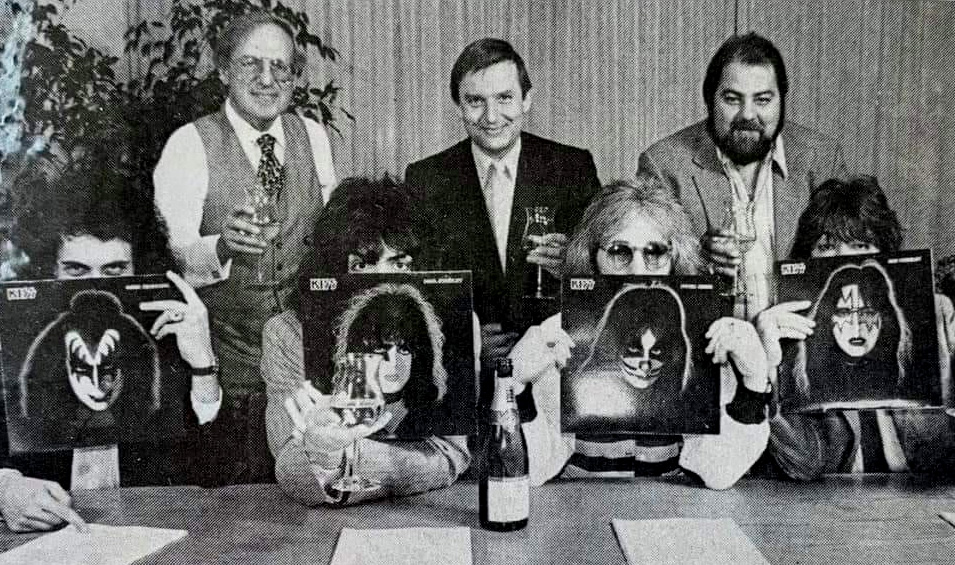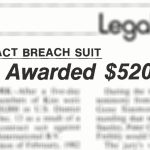On 1. April, 1980, Kiss re-signed with Casablanca Records who had breen acquired by PolyGram Records. The band signed the contracts at PolyGram’s office in New York.
Paul Stanley:
“A the drama with Peter was unfolding during the first half of 1980, we were also involved in a drama with our record label. Casablanca was absorbed by PolyGram, and for some reason the lawyers of the new company hadn’t checked Casablanca’s contracts with a fine-tooth comb. PolyGram assumed they were buying KISS and Donna Summer along with the label, but we had a “key man” clause, meaning that in our case, the deal was predicated on the presence of Neil Bogart. And from what we heard, the same was true of Donna.
Now, we may have been in some decline after Dynasty if you gauged things by the tour—when we’d had to cancel some shows and witnessed the changing demographics of the audience. But the way PolyGram saw it, Dynasty had been a huge hit, and in addition to making the charts at home, “I Was Made for Lovin’ You” had been our most successful single outside the United States by far, hitting the top ten all across Europe and topping the charts in Australia and New Zealand. The label risked looking like idiots if they let us walk away—which we were entitled to do once they canned Neil. The situation could not have worked out better for us. PolyGram ended up giving us a new and very lucrative deal as a facesaving move. Negotiating a new contract under these disastrous circumstances for them proved extremely advantageous for us.”
– “Face the music: A life exposed” by Paul Stanley

Cash Box news 17. May 1980.
Dale Sherman:
“On February 8, 1980, Polygram took the third option in its grasp as Bogart officially announced his resignation from Casablanca Records & Filmworks. In doing so, Bogart had sold most of his stock in Casablanca to Polygram, establishing the company as the major stockholder. Bogart ended up with a rumored $15 million for his shares, while also retaining a minor interest in the company along with an advisory position in Casablanca and Polygram. As written in the February 23, 1980 issue of BILLBOARD (pages 1, 9 and 66, by John Sippel), Neil Bogart had already set sights on a new career in music with the formation of this company BogArts, which would eventually become Boardwalk. He also joked with Casablanca employees in a letter sent to them on February 13th that he “was still your landlord” since he was one of the principals involved in a combine that owned the five buildings that housed the record company on Sunset Boulevard. Thus, while Bogart may have privately faced misgivings of losing the company he created, to all outward appearances his future were looking bright indeed.”
– “Black diamond: The unauthorized biography of Kiss” by Dale Sherman







